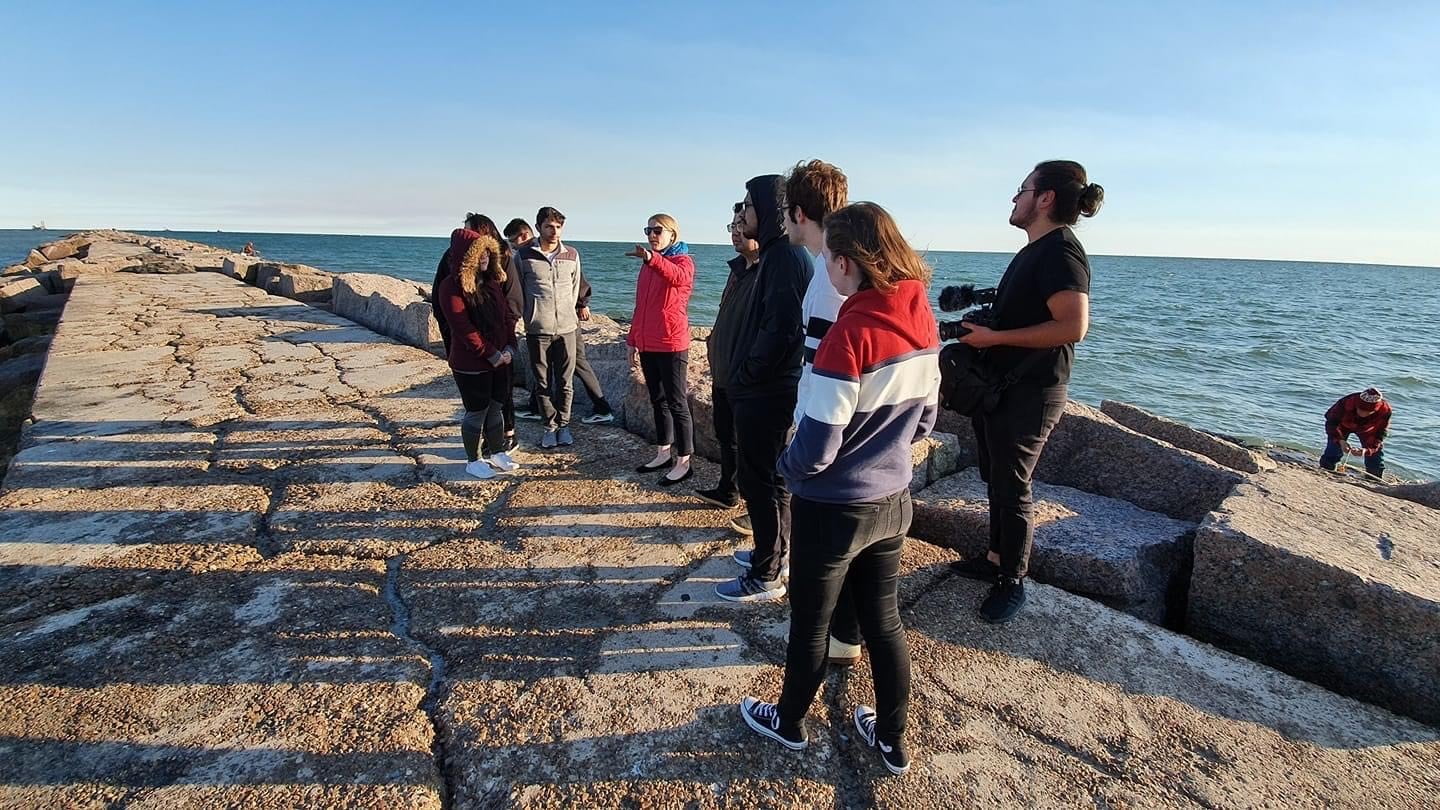A how-to for reducing flooding impacts in coastal towns
A University of Texas at Arlington civil engineering researcher is determining what strategies are most effective at lessening flooding in coastal communities.
Michelle Hummel, a civil engineering assistant professor, is using a $499,973 National Oceanic and Atmospheric Administration (NOAA) grant to study the benefits and costs of flood-reduction strategies aimed at increasing coastal resilience to storms and sea-level rise.

Hummel and her colleague, Kevin Befus of the University of Arkansas, will apply advanced computer models to simulate how these strategies affect water levels both on the surface and underground and the flooding of homes, businesses and infrastructure.
“We will test a range of strategies, from gray infrastructure like seawalls or levees to green or more natural solutions like dunes,” Hummel said. “Our models will show how each strategy performs in terms of flood reduction and will also estimate economic, social and ecological benefits.”
Hummel said her project also will engage communities where the strategies would be implemented. Although the exact partner communities are yet to be decided, Hummel has previously worked with communities in California’s Santa Monica Bay and Humboldt Bay areas, thanks to NOAA funding.
“A major goal of this project is to produce locally relevant information that communities can use to pursue funding for the design and implementation of flood-mitigation projects,” Hummel said. “By working with community partners throughout the project, we can refine the types of strategies that we test and ensure that community priorities, such as equity concerns and impacts to recreation, are included in our analysis framework.”
Melanie Sattler, chair of civil engineering and holder of the Dr. Syed Qasim Professorship, said this type of project has the ability to address site-specific flooding and determine what works best at the local scale.
“This project will provide locally relevant guidance on the economic, social and ecological implications of coastal flooding,” Sattler said. “Decision-makers can use this information to select flood-reduction strategies that align with community priorities.”
Hummel has received several others grants focused on building community resilience to climate change and environmental hazards. In 2022, she earned a $2.4 million National Science Foundation (NSF) grant to help Texas coastal communities and nonprofit organizations better monitor climate and industrial changes in their neighborhoods using real-time sensor technology. In 2021, she received a $396,200 NSF grant to test how crowdsourcing can help assess and build resilience in communities susceptible to natural disasters. She also earned a $150,000 NSF grant in 2021 to help the city of Ingleside on the Bay, Texas, monitor local air and water quality.